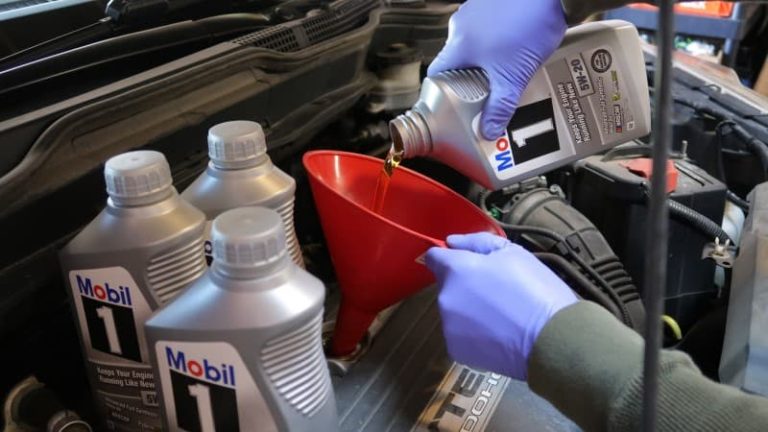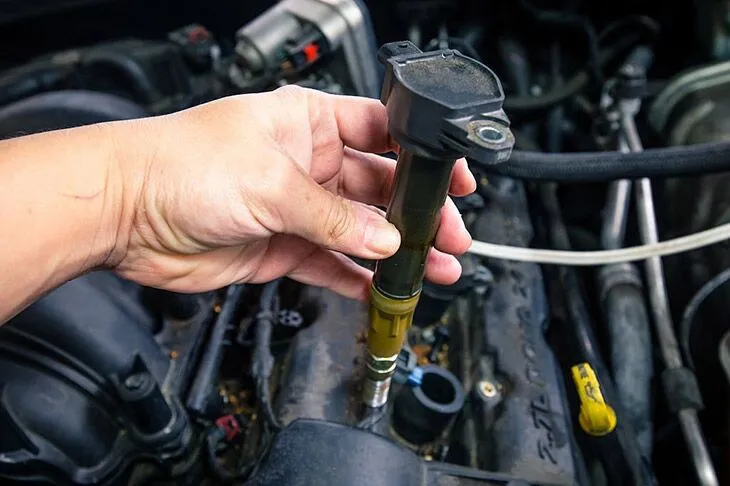Why Is My Steering Wheel Shaking
For every motorist, a trembling steering wheel is an uncomfortable situation. When your steering wheel vibrates, whether it’s during high-speed driving or low-speed turns, it may be a sign of a more serious problem with your car. It may be a minor issue in some situations, but in others, it may indicate a more significant mechanical issue that has to be fixed right away. It’s critical for your safety And the lifetime of your car to know why your steering wheel is shaking And how to fix it. This article explores the typical reasons behind steering wheel vibrations, how to identify them, And steps you may take to avoid further problems.
Understanding the Mechanics Behind Steering Wheel Shaking
With its direct connection to the wheels, the steering wheel is an essential component of your car’s control system. Its purpose is to provide you accurate control As you drive by providing feedback. Something in the system is wrong, unbalanced, or broken when it begins to shake. There are many possible causes of the shaking in your vehicle, including the tires, suspension, And even the steering system. Finding A solution begins with determining the problem’s underlying cause.
Common Causes of Steering Wheel Shaking
Steering wheel vibrations may seem alarming, but the good news is that they’re usually caused by common, fixable issues. Let’s explore the leading causes:
- Unbalanced Wheels and Tires: Unbalanced wheels are one of the most frequent causes of a shaking steering wheel. When wheels are not evenly weighted, they create uneven rotation, leading to vibrations, particularly at higher speeds. This issue is usually noticed when driving at highway speeds and can make your ride feel uncomfortable.
- Misalignment: If your car’s wheels are not aligned correctly, they can cause uneven tire wear, which in turn leads to vibrations that are felt through the steering wheel. Misalignment may also cause your vehicle to pull to one side while driving, contributing to the shaking sensation.
- Worn Tires: Tires that are old, unevenly worn, or improperly inflated can lead to a bumpy ride. Tires with bald spots or irregular wear patterns will not grip the road evenly, causing shaking in the steering wheel.
- Brake Issues: Warped brake rotors can cause the steering wheel to shake, particularly when braking. When the rotors become uneven, they create a pulsating effect as the brake pads make contact, transmitting vibrations through the steering system.
- Suspension Problems: The suspension system, which includes components like shocks, struts, and ball joints, is responsible for keeping the car’s ride smooth and controlled.
- Steering System Malfunctions: Problems with the steering rack or power steering pump can also result in a shaking steering wheel. This issue is usually accompanied by difficulty steering or strange noises when turning.
Signs You Need to Address the Shaking Steering Wheel
A shaking steering wheel should never be ignored. If you’re experiencing any of the following, it’s time to pay attention and get your car checked:
- Shaking at High Speeds: If your steering wheel only shakes when you’re driving at high speeds, it’s most likely related to unbalanced wheels or tires. This problem can worsen over time and affect your vehicle’s overall stability.
- Vibrations When Braking: If your steering wheel shakes specifically when you apply the brakes, this is often a sign of warped brake rotors. The problem could be minor at first but will likely worsen, leading to compromised braking performance.
- Shaking When Turning: A steering wheel that shakes or vibrates when you turn could indicate an issue with the suspension or steering system. Worn-out parts like ball joints or tie rods can lead to this issue.
- Constant Vibration at All Speeds: If the steering wheel shakes at all speeds, it could suggest an issue with alignment, suspension, or steering components that needs immediate attention.
Diagnosing the Problem: Simple Steps You Can Take
Before you head to a mechanic, there are a few simple diagnostic steps you can take to identify the source of the shaking:
- Check Tire Pressure: Incorrect tire pressure can cause uneven wear and lead to vibrations. Check your tire pressure with a gauge and adjust it to the recommended level, typically found on the door frame or in the owner’s manual.
- Inspect Tires for Wear: Look for any visible signs of tire damage or uneven wear. If the tires are worn unevenly or have bald spots, they may be the culprit.
- Test for Alignment Issues: If your car pulls to one side while driving or you notice your steering wheel is off-center, you might be dealing with misaligned wheels.
- Check for Brake Problems: If the shaking only occurs when braking, it’s likely an issue with the brake rotors. You can inspect the rotors for any visible damage or grooves, although it’s often best to have a mechanic check them out.
What to Do When You Have a Shaking Steering Wheel
Once you’ve identified the cause of the shaking steering wheel, the next step is to decide how to resolve it. For minor issues, such as unbalanced tires, you may be able to fix the problem with a quick visit to your local mechanic or tire shop. For more significant problems, like misalignment or suspension issues, professional repairs are usually necessary.
- Balancing the Wheels: A tire shop can easily balance your wheels and tires, which should stop the shaking at higher speeds.
- Wheel Alignment: If your wheels are out of alignment, an alignment service at an auto shop can correct the issue. This will not only stop the shaking but also prevent uneven tire wear and improve overall handling.
- Tire Replacement: If your tires are excessively worn or damaged, replacing them is the best solution. Regular tire inspections and rotations can help prolong the life of your tires.
- Brake Rotor Replacement: If warped rotors are the cause of the shaking, they will need to be replaced or resurfaced. If you’re unsure, have a professional inspect the rotors and recommend the best course of action.
- Suspension and Steering System Repairs: If the problem lies in the suspension or steering system, a mechanic will need to diagnose and replace any faulty components. This may include shocks, struts, ball joints, or the steering rack.
Preventing Future Steering Wheel Shaking
Once you’ve addressed the current problem, it’s important to maintain your vehicle to prevent the shaking from recurring:
- Regular Tire Maintenance: Check tire pressure regularly, rotate your tires, and inspect for wear. Proper tire maintenance can prevent many of the issues that lead to steering wheel shaking.
- Alignment and Balancing Checks: Have your vehicle’s alignment and wheel balancing checked periodically, especially if you’ve noticed any previous steering issues. These services ensure your car stays in optimal condition.
- Brake Inspections: Get your brakes inspected regularly to catch issues with the rotors early. Replacing brake pads and rotors before they become warped can help avoid vibration problems.
- Suspension System Care: Keep an eye on your suspension components, and replace worn-out parts as soon as possible. Maintaining a smooth, responsive suspension system will enhance your vehicle’s handling and comfort.
Conclusion: Ensuring a Smooth and Safe Ride
More than simply a little annoyance, a shaking steering wheel is often an indication that a system in your car requires maintenance. Addressing the source of the shaking as soon as possible is essential, regardless of whether it is due to misalignment, imbalanced tires, or more significant braking or suspension issues. You can maintain your car in top shape and drive more smoothly and safely by figuring out why your steering wheel is shaking and taking the appropriate action to remedy it. Maintaining your car’s dependability, comfort, and safety while driving requires routine maintenance and early problem diagnosis.







